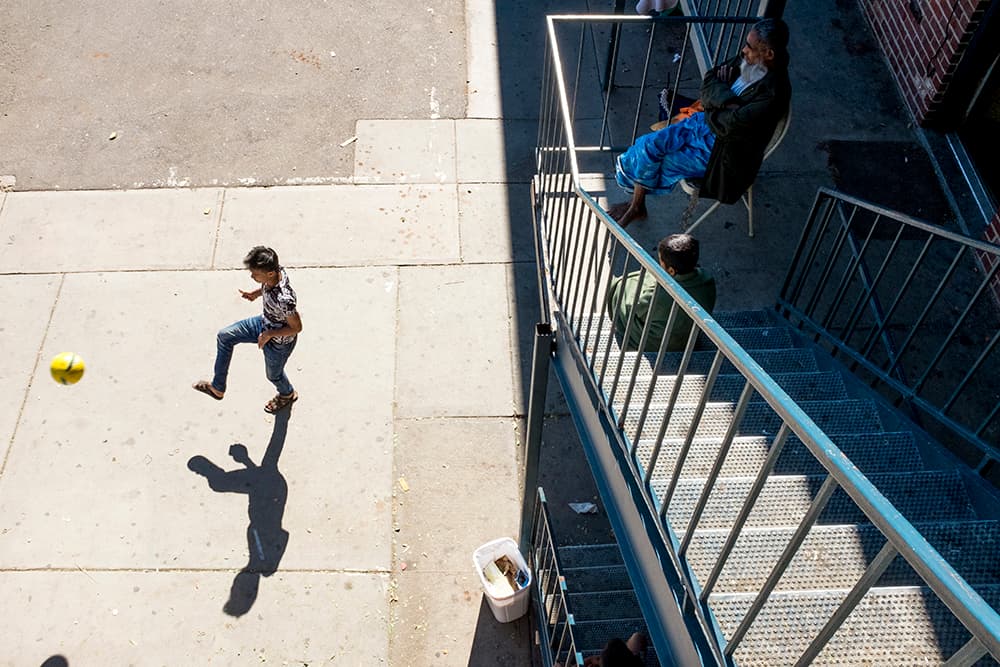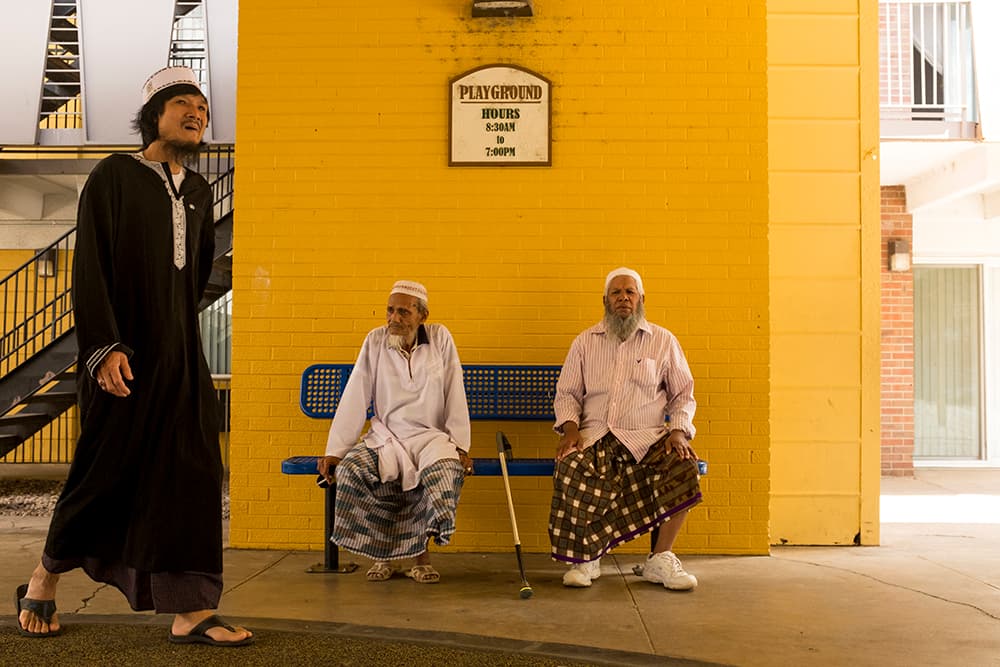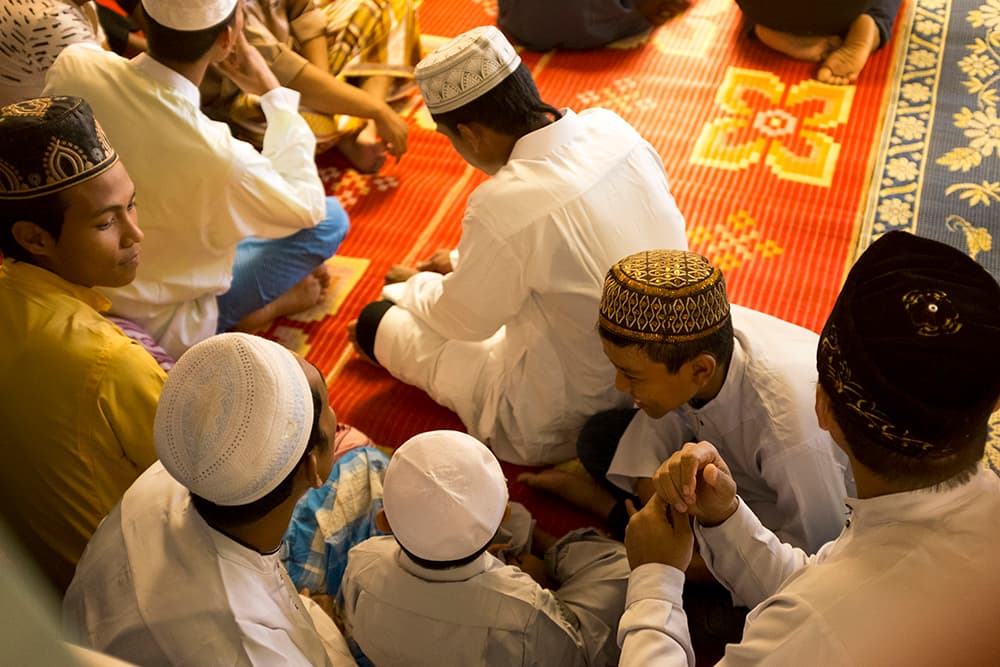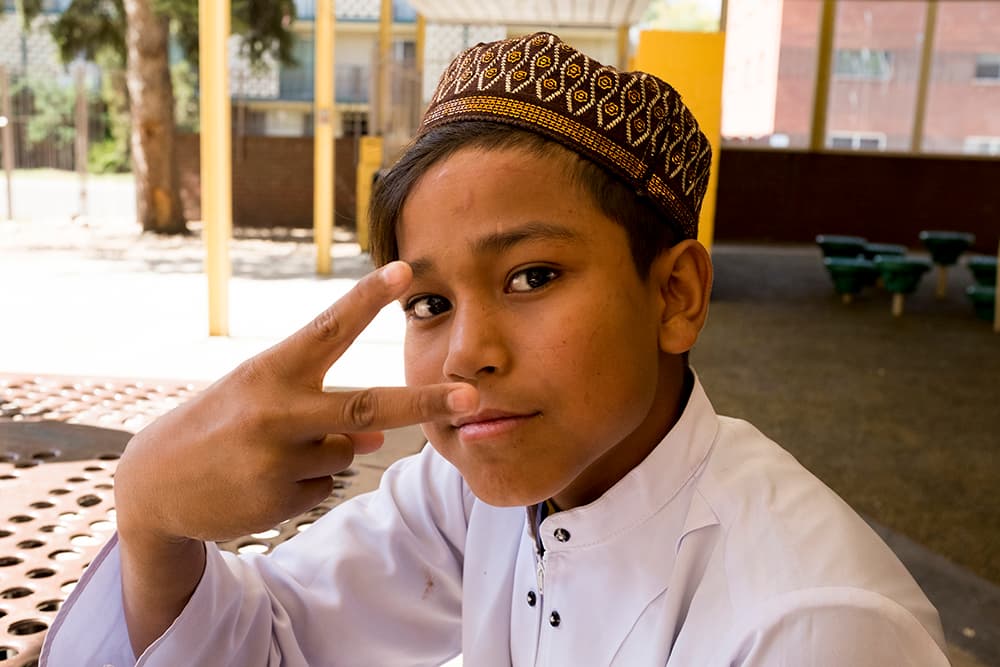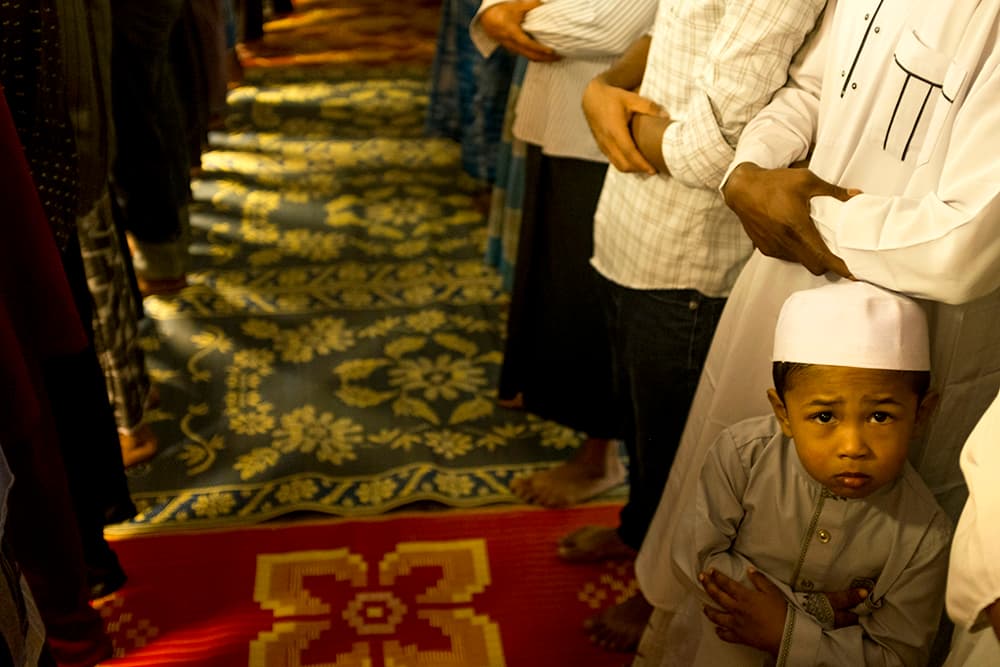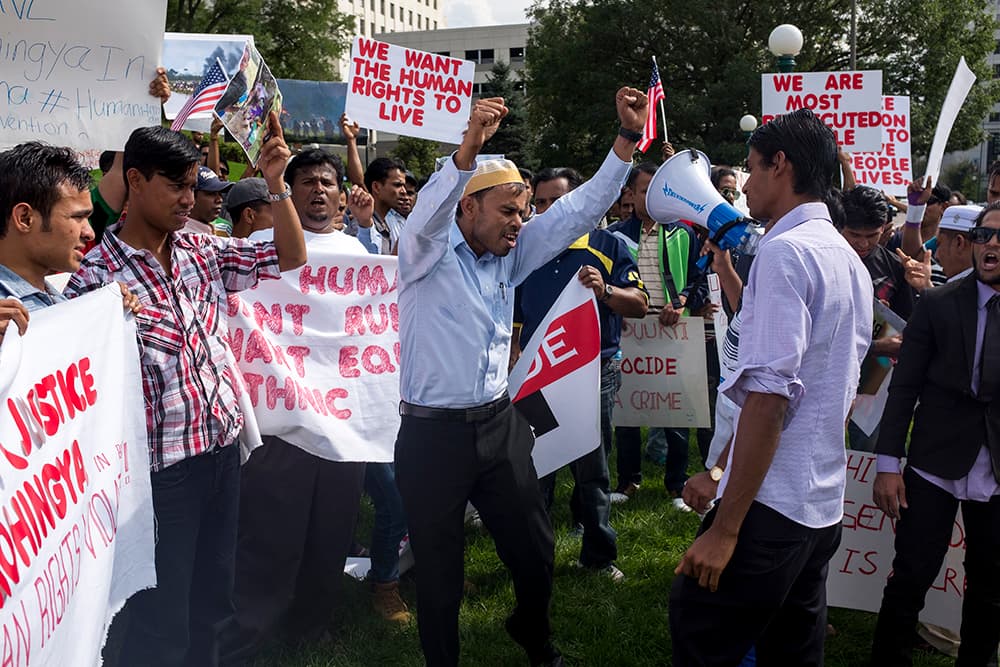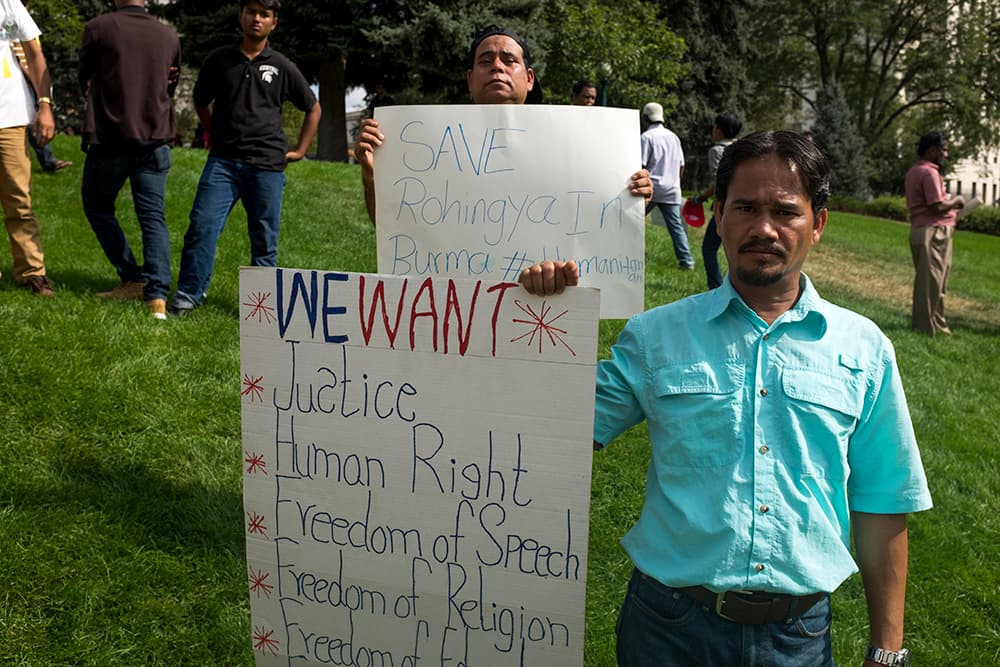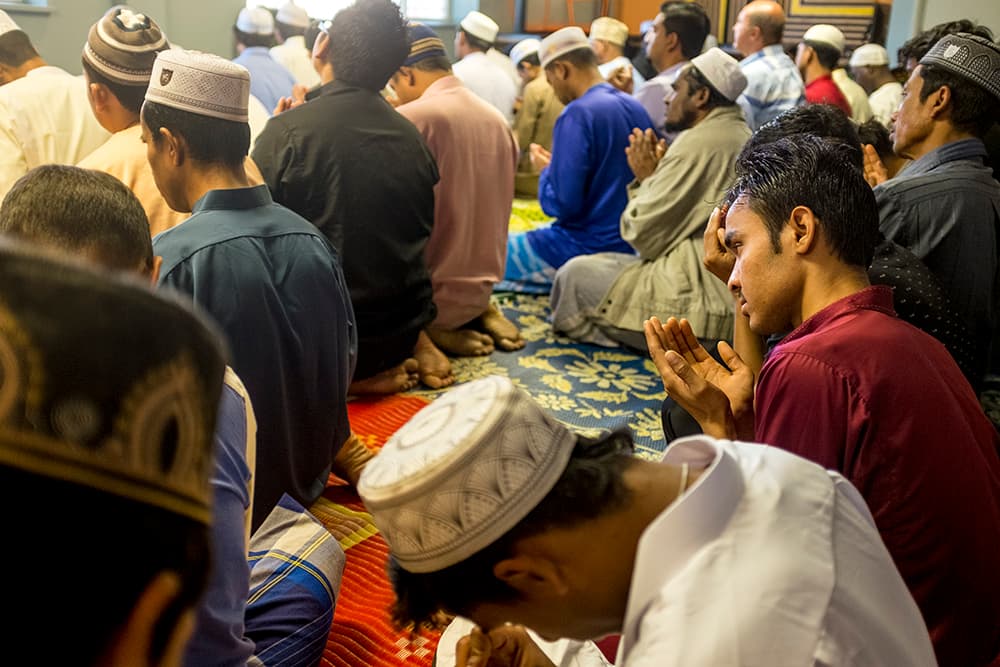
It's time for Friday afternoon prayer for metro-area Muslims and a room inside an apartment building along 14th Avenue in Aurora is filling up with men and boys. This makeshift mosque is on the ground floor of a building that's home to many of the area's Rohingya refugees, a Muslim minority from Myanmar (formerly Burma) that's been in the news a lot lately.
Many Rohingya left Myanmar within the last 10 years to escape what has been called a government-led genocide. This year, violence at home flared again. Those who remain in Myanmar are still fleeing burning villages and deadly conflict with armed forces, and this time they have a live audience. A half million people have evacuated in the last two months; as they cope, their friends and family in Denver and Aurora are watching closely and in real time on social media.
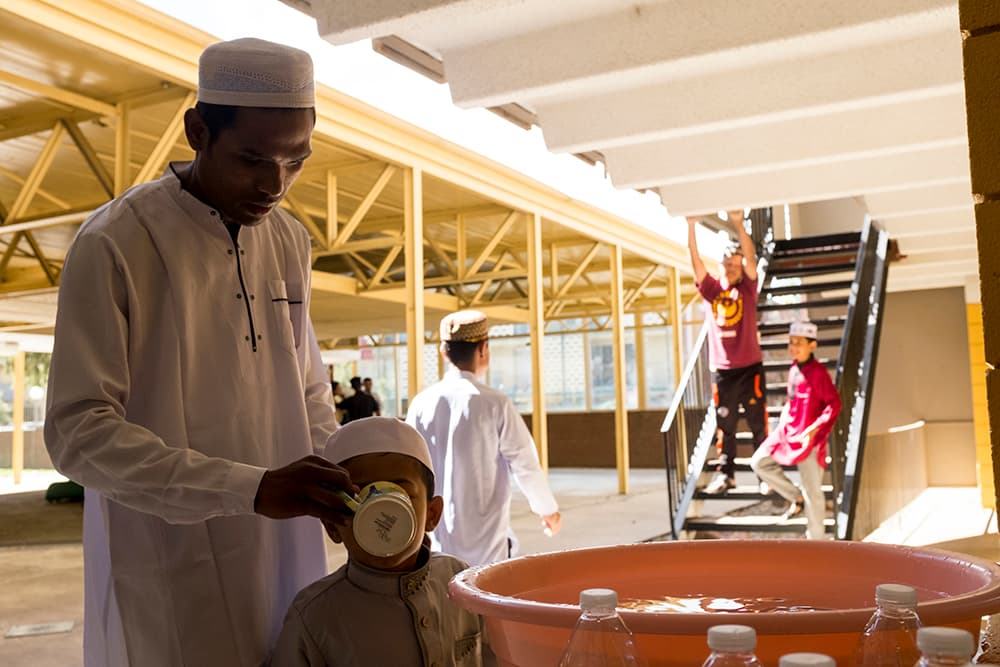
Before prayer begins, 22-year-old Mdosman Gani pulls out his phone and shows me video of hundred of people crossing a river into Bangladesh, carrying belongings over their heads. He swipes to another video; this one shows plumes of smoke rising from a nearby village.
"This is yesterday," he says.
A quick scroll across his feed reveals that it's dense with firsthand accounts of this new exodus from Myanmar. There are text messages, too. Next is a photo of a man with amputated legs, next a photo of women and children in a makeshift tent.
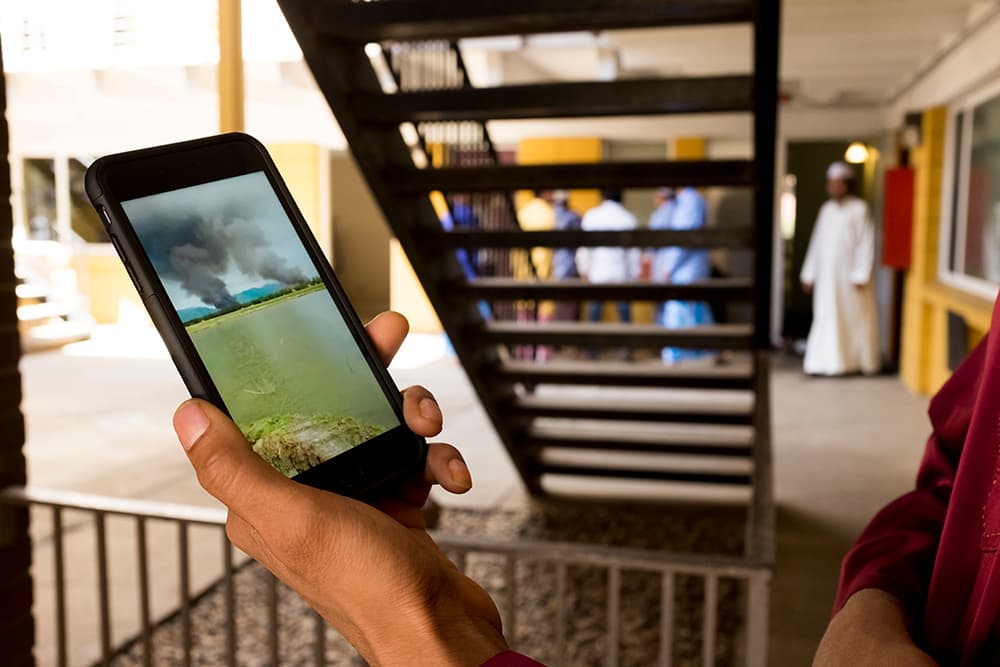
Peering in is Mohammed Amid, who's 27. This stream of images is difficult to watch, he says. Even though he left Burma more than a decade ago, he personally knows many people who have been swept up in the latest violence. It's hard, he says, because while he can tune into live coverage of the humanitarian disaster, there's little he can do about it himself.
"We can pray for them," he says. "We can wish.” As men pack the mosque room they begin to do just that.
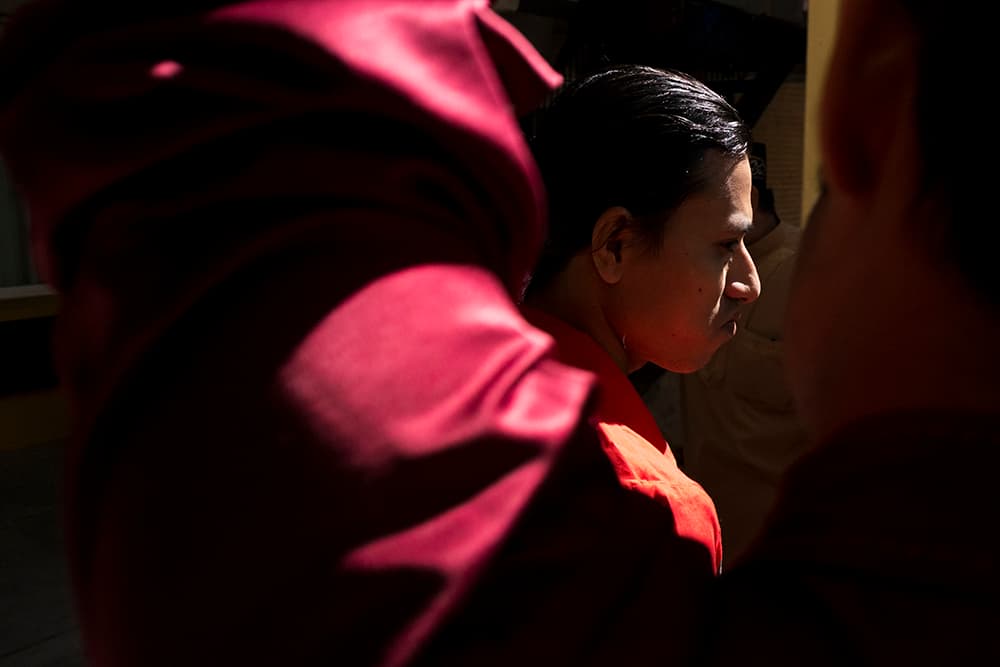
Sometimes, all-access is a bad thing.
Htein Lin is doing more than just praying. As an organizer of the Colorado-based Burmese Rohingya Association, Lin helped organize a rally on the Capitol lawn in September that he hoped would spark some action. Rohingyas from across the Front Range gathered to make a loud public statement about the conflict.
The message to Denverites, Lin said, is to demand that officials take a stand. "We want the U.S. government to speak up against the genocide.”
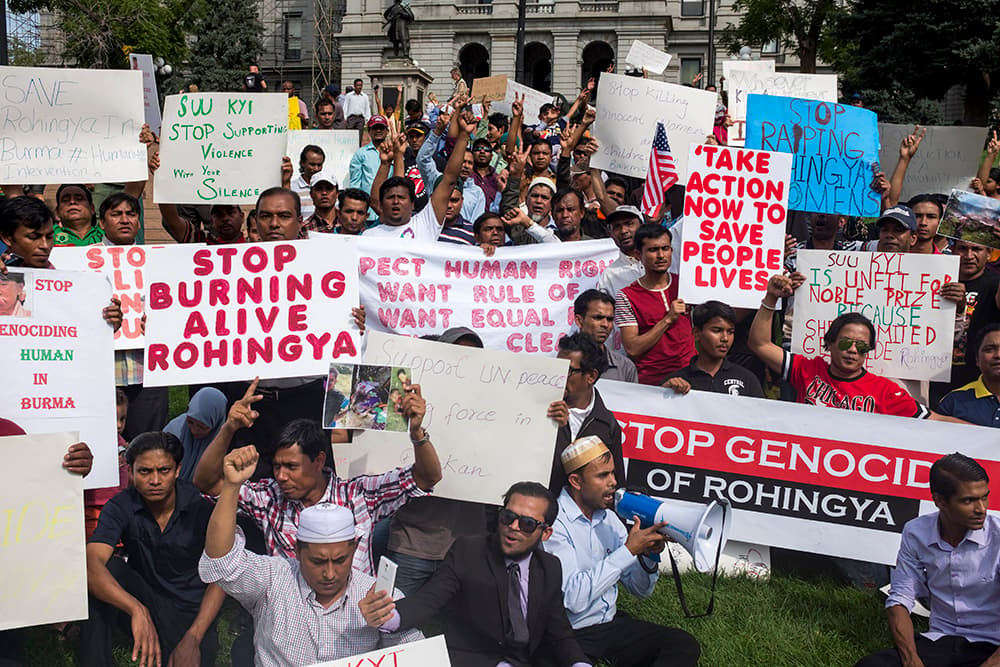
While his community's struggles have clearly moved him to action, Lin said he tries to avoid watching too much of it. The endless stream of footage coming across social media, he says, can be too much to process.
He speaks with family members on the phone all the time, so he doesn't need Facebook to stay informed. But more crucially, he said, it's just too painful.
“I try to avoid watching that kind of thing,” he said. "I don’t like to see the videos."
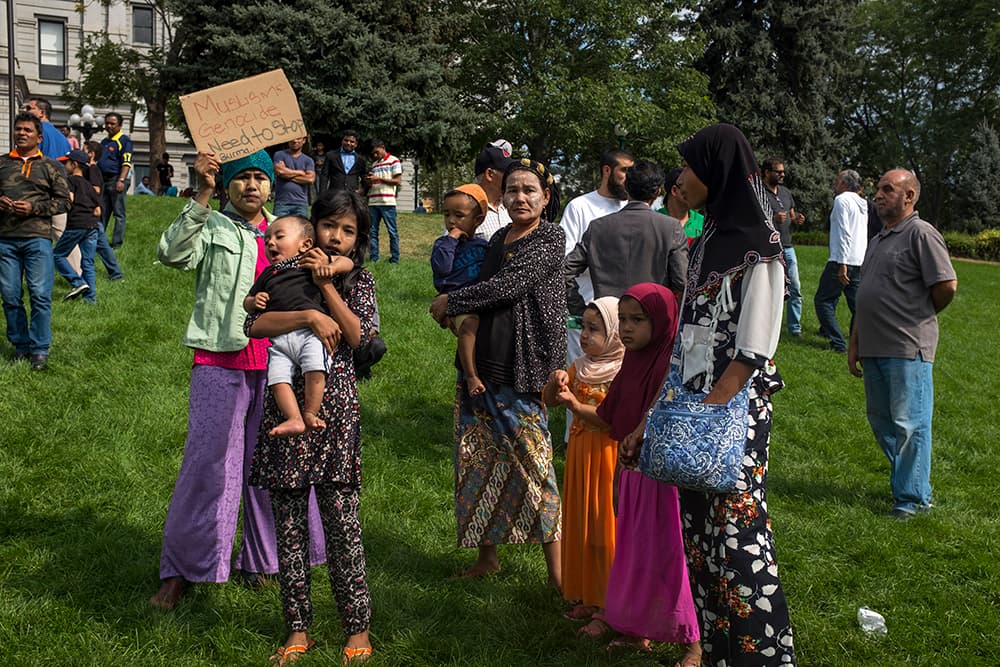
Every single person in his community, he said, has relatives fleeing Myanmar. His own parents and siblings are still there. Everyone knows someone who's suddenly disappeared. All this can make Facebook Live a "mentally painful" experience, he said. "It is our blood, it is our relatives, it is our parents."
This is not to say that everyone will be negatively impacted by the stream of footage. Gwen Mitchell, an assistant professor at the University of Denver's Center for International Disaster Psychology, told Denverite that it's more complicated than that. She compared it to surgery: Some people are comforted knowing every detail of an upcoming procedure while others want to just trust their doctor.
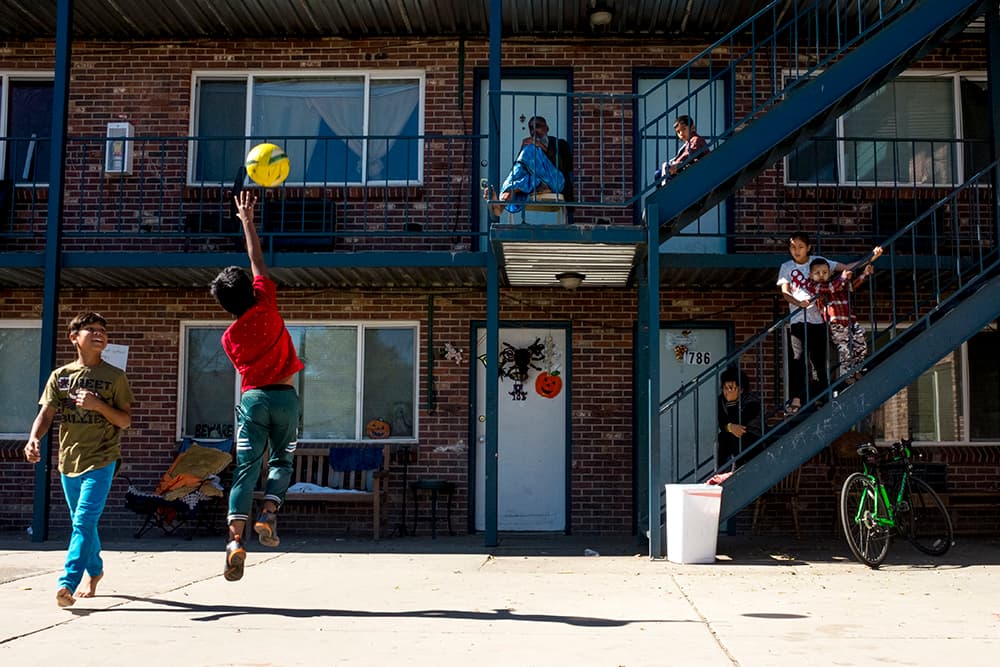
But, she continued, there's been work done since 9/11 in the U.S. that suggests traumatic events captured on video can be problematic. Kids, she said, can have trouble establishing a timeline of events when video of a disaster is played on a 24-hour news cycle. They might associate television with a parent's grief and lash out when it's on. For people who have experienced significant trauma, footage of familiar circumstances can act as an unwelcome trigger, activating a "fight or flight" response.
For this community in particular, Mitchell said, it's most important to realize that people are more likely to see their own well-being as tied to that of their entire family. Rather than an "individualistic" lens that Westerners might be used to, she said resettled Rohingya are more likely to think: “If some of us suffer, we all suffer.”
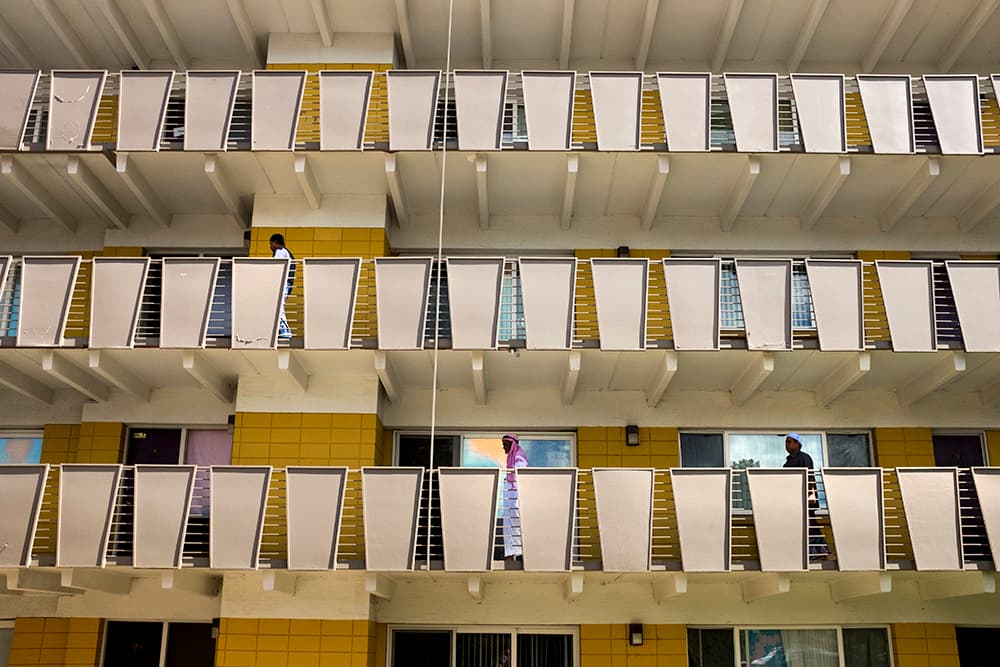
Do you want to do something?
Htein Lin says the best thing you can do is call your senator or representative and ask them to speak out against the violence and help mount international pressure to end it. He hopes, ultimately, that the United Nations will intervene.
Activist Nadeen Ibrahim, who helped Lin organize the rally at the Capitol, told Denverite that the flood of refugees into Bangladesh will require a lot of money to handle properly. She suggests donating to the Burma Task Force if you want to help with the immediate humanitarian response.
Locally, refugee resettlement agencies are accepting volunteer applications all the time. You can check out Lutheran Family Services or the African Community Center if you'd like to help people resettled here in the metro area.
